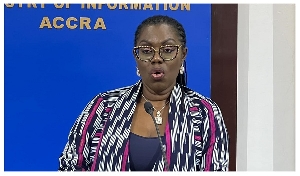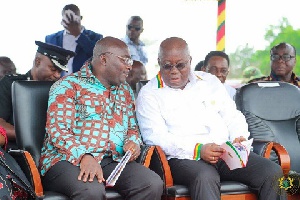Regional News of Wednesday, 11 February 2015
Source: GNA
Validation workshop to assess studies on climate change opens
A national validation workshop on country assessment studies on Climate Change, Agricultural Trade and Food Security within the Economic Community of West African States (ECOWAS), on Tuesday opened in Accra.
The study, which was the first phase of a two-year research activity involving 13 ECOWAS member countries, aims at assessing whether agricultural production systems and trade policies in the sub-region could be adjusted to alleviate the impact of climate change on food security and promote sustainable development.
The participating countries made up of Ghana, Benin, Burkina Faso, Cote d’Ivoire, The Gambia, Guinea, Guinea Bissau, Mali, Niger, Nigeria, Senegal, Sierra Leone and Togo, were to validate their reports to ensure the authenticity of the information before forwarding them to the ECOWAS for adoption.
The workshop, organised by the United Nations University Institute for Natural Resources (UNU-INRA) in collaboration with the African Climate Policy Centre (ACPC) of the United Nations Economic Commission for Africa, was to engage experts on the subject matter for their input to ensure that all the critical issues were incorporated.
It was also to strengthen the commitment of policy makers, researchers and other key actors to promote a sustainable agricultural sector for development.
Dr John Baptist D. Jatoe, UNU-Project Consultant, said among the key findings of Ghana’s study were that climate change was projected to have severe impact on land use and water bodies leading to loss of biodiversity, soil infertility, land degradation, diminishing water bodies as well as increased deforestation due to lack of attention to sustainable land management.
Dr Jatoe said the main concerns on the potential impact of climate change were the increased pressure on water, reducing the potential for hydro-power, and impact on agriculture with reduced crop yields leading to poverty and food insecurity, as well as the loss of national revenue from cash crops such as cocoa.
There was also the issue regarding migration increases leading to current pressures on urban services, resulting in deteriorating human health as a result of increased incidence of diseases among other things.
He said although several interventions were already in place to mitigate the impact of climate change in Ghana and other countries, they needed to be properly co-ordinated and, therefore, the project was a regional effort to document existing findings and data on climate change to allow for proper headway to solving its challenges.
Ms Euphrasie B.H. Kouame, a Fellow of UNU-INRA, said the output of the research project would support efforts by ACPC in increasing the capacity of ECOWAS to be able to mainstream appropriate climate change information into policies, development plans and frameworks to respond to the current and future impacts of climate change in the agricultural sector.
The countries were to, among other things, develop country profiles on climate, soil, hydrology, agricultural issues involving land use, production, trade, and also analyse existing policy and institutional arrangements.
They were also to identify data sources and availability and synthesize analytical studies that had been undertaken to understand climate change and agricultural trade for West African countries, as well as review the state-of-the-art methodologies to analyse climate change, agricultural trade and food security.
The accuracy of the information is critical to harmonise the project analytical methodologies or to develop agricultural trade-related climate change adaptation scenarios for ECOWAS.










